We live in a kind of world in which we have created an artificial pattern. We have come to conclude that the troubles of life are real and immediate, and the joys of life remote and reserved for a fortunate few. We have also come to the general feeling that the knowledge necessary for our own enlightenment is extremely difficult to secure.
In a sense, this is true, but it is not true because of the quality of knowledge, but only because of the attitudes we have created within our own natures. We have created a wall between ourselves and the natural life.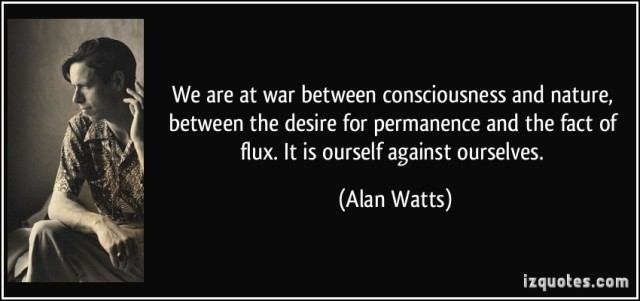
Let us all think back a little to what was happening twenty or thirty years ago – the houses we lived in, the people we knew, the patterns which made up our friendships and acquaintances. As we look back upon that time, we see many faces in our minds that are no longer with us; we see situations that have broken up and disappeared; we see old houses that have been torn down for freeways; we see gardens that have disappeared to make way for apartment houses. The whole area of our experience has changed.
Now, it is perfectly normal to develop a little nostalgia about this. But, what it really does, is it points out that all things change; that whatever we grasp at vanishes even as we reach for it, and that most of the experiences of life have permanence only in our own memories.
So instead of regarding the world as a permanent place, maybe we should regard it as shifting sands of circumstance.

Every time the wind blows the sand, its patterns change, and the sand itself slips through our fingers. And if we think for a moment of the faces we no longer see, we can very quietly remember that some day our own face will be among those that will no longer be seen; but instead of getting melancholy over this, this should be a something that is understood. The moment we can see this other side of things, the moment we can see that the reality of life is its motion and not its stationary aspect, then we can come to recognize that things are really motion, not objects. All objects vanish. Motion goes on.
Motion is the only fixed thing there is. Motion is that which will continue, which has always been and always will be – a movement of life. It is this movement of life that is its very essence and substance. It is by means of this that life becomes life. Life without motion or movement is as the seed before it is quickened.

Within us, then, is pure motion. Our self instead of being a fixed ego, is motion. It is something that is always in a state of becoming what it has not yet attained, and releasing that, which has already acquired. Motion is from the things that have been to the things that are, and on through all other states and conditions. Thus we live from what we have been, from what we are, and toward what we will be.
Change is natural to moving things. Change is only difficult to the person who believes that his own mind never changes.
It is a fact that everything in nature moves. Everything moves from the state of insufficiency to the state of greater sufficiency; from failure to success; from slavery to freedom. Therefore, there is in ourselves no impediment to our own motion to completion, except the impediment, which we place in our own minds.
If then, instead of living in a fixed world, we begin to look around us, we will discover something that we already know scientifically, but which in our psychology we do not always admit to ourselves. Our earth is moving, everything that we have is moving through space rapidly or more rapidly than any projectile that we have yet been able to devise. Space, time, eternity, all is motion. Cosmic systems are forever moving.

We are actually not standing still, even on this little planet. And motion is of two kinds – motion from place to place, and motion from quality to quality. These motions determine our real growth, our real ability to be great beings.
Stability to us is very largely in terms of status. It is what we own – our bank account, our income, and the property that we administer. It is something we can reach out and touch. Or, within ourselves, stability is a thing that we can call stubbornness – the determination to maintain the status quo. It is our resolute determination to cling to those things that seem to be pleasant, and to build continuing walls against those things, which we believe to be unpleasant.
One of the great impediments to progress, in every area that we know, is this reactionary authoritarianism, and this little more that the continual exertion of the idea that there is a desirable permanence in things.
Take, for example, an area like education. With the exception of a few minor details, the educational theory of today is essentially that which was devised during the Renaissance. In other words, our educational theory actually came into existence in the 15th century. We have undoubtedly refined and advanced the subjects taught, but the theory of teaching remains essentially the same.
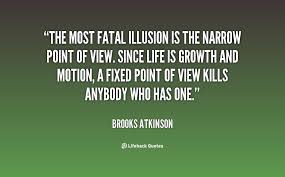
We call this traditional authority. We believe that this fixedness is the desirable thing. Whenever a progressive educator arises who would like to correct some of the old faults, they are regarded as the enemy of education. It is necessary for the great-entrenched pattern of things to rise against them, with all of its authority, and discredit them, because anything, which attacks the continuance of the things as they are, is regarded as the enemy. We do not like to be moved out of patterns or to change our ways. We want to remain in the old comfortable attitudes, which have made us miserable for years and will continue to do so. So when someone comes along and suggests that we take a different attitude, we rise in defense of the old-not because it is good, but because it is familiar.
All over the world, therefore, the progress necessary to the solution of human problems has been inhibited by reactionary pressure. This reactionary pressure is that the individual or group shall hold on to the advantages that it has. The thing itself must be preserved.
But, what really must be preserved is motion. Anything that blocks or stops motion, or stops the process of a thing unfolding from within itself, is bad, and is ultimately going to result in tragedy for all concerned.
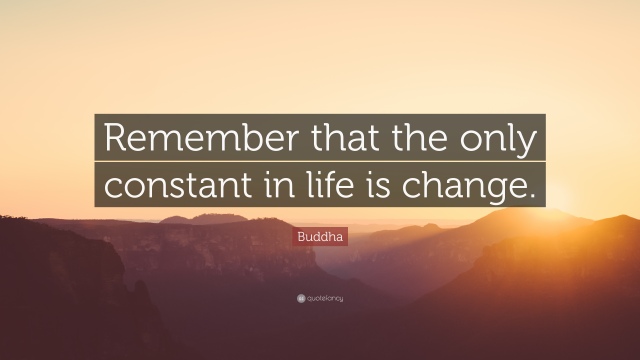
Now, in terms of practical living, this is tremendously important, because many of our troubles arise from our desperate struggle to avoid change. If however, we believe simply in a moving universe- if we believe that it is perfectly right and proper that things should change, that our own body should age, that our property should wear out, instead of resenting these things; if we recognize the inevitable that the things that we possess will gradually disintegrate, then we have release from this desperate effort to attempt to prevent that which we cannot prevent.
Everywhere we look, things gradually disappear and other things come and take their places. Each year we watch the garden grow into its winterness, and sometimes we find it necessary in some areas certainly to replant our gardens every year. No matter how beautifully they may bloom in August, we know how they are going to look in December. There is nothing we can do about it. We accept this subconsciously, but we do not apply it to our own code of conduct. We do not release ourselves from this lockedness of affirming that we must defeat the seasons.
If we can find some way to make or force this garden to grow, then we are a success; whereas in fact the substance, these principles cannot be defeated, and we ultimately destroy ourselves trying to defeat the principles of life.
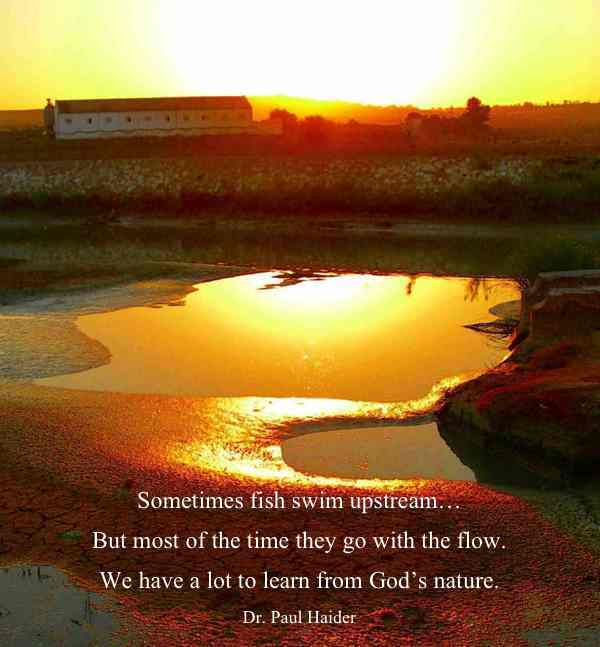
So we need to remind ourselves as strongly as possible, to become observant, to simply accept those things which time and eternity and the living motions of life, reveal to be true. It is not necessary for us always to believe what we read in books; but we cannot successfully deny what we see unfolding around us in the ritual of nature itself.
We cannot deny the story of the morning glory, although it may not be the same kind of story that we find in the book of history. We cannot deny the example and the experience of the bird and the butterfly, the flowering plant, the great tree, the mountain, the rivers. All of these experiences move in upon us, and they become the valid messengers of one fact – namely, that everything it the universe is change.
Actually we have no right to say that change is bad. If change is bad, God is bad; if change is wrong, then the whole universe if wrong, and there is nothing we can do about it. Change is the most blessed of all things. It is, however, a continuance against which we have built one very difficult barrier, and that is the barrier of death.
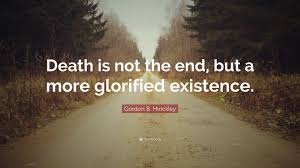
We assume that all change leads to death, and that beyond death, there is only uncertainty. Even the most theologically minded person with a strong moral argument for immortality, still measures, by means of his sensory perception, the duration of things, and marks this duration with death. However, all change ends in life, because death is not the end, but a releasing of things from restraint against change.
If we can remove the idea that change ends in death, we will destroy one of the great adversaries to our peace of mind, and we will have greater courage with which to free life, and to live our own lives without this barrier being forever high before us. Then, motion becomes the symbol of complete freedom. This motion goes on forever, fulfilling its own purposes, and carrying with it the fulfillment of all creatures; for it is motion that makes growth possible, and it is growth which makes enlightenment inevitable.

Let us imagine for a moment, that we are trying to sincerely get some peace of soul, to get through this block, which holds so many of us.
Through the love of nature we can develop of kinship with life. We can pick up books on nature study and gain some magnificent insight. Anyone who has ever read through a book on the life of birds, or on the life of insects, or has considered the stories written on these little lives, will suddenly discover the universality of intelligence. We would realize that these little creatures, without our faculties or powers, have tremendous existence of their own and that we, by our faculties and powers, has become disorderly, disobedient and has allowed our ambitions to threaten the survival of our own kind and all other kinds in nature.
We have all seen the metamorphosis of the butterfly from the caterpillar; we have all seen life come to the nest in the tree; we see around us all the manifestations of universal energy – motion that make up the mystery of nature; but only a few perhaps have ever come to experience these facts in a way that influenced and modified their own lives. Most people do not accept these facts as Scriptures to be meditated upon, as mysterious mandalas to be studied and explored.
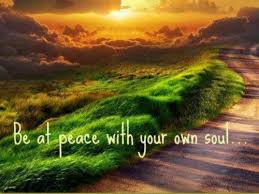
We can turn to the sky and the mountains and the moving stream. Here there are no doubts- only facts. We can explain them in a thousand ways, but the facts remain. The rivers cannot talk to us; the birds cannot tell us anything; and yet there is nothing that has existence that does not speak. Trees speak – you can hear their voices when the wind moves through the branches, birds speak with their song. Some things speak in color, and others in motion.
The race of living things speaks in the flutter of wings and little cries at night. The fish speaks, for you hear the little eddy of water when he swims; he jumps into the air and there is a little splash in the pool- this is the voice of his way of life. Everything has some kind of voice, and the quieter we become to more of these voices we can hear. All of these voices together reminding us that we live in a universe of facts, that we live in a universe of things that are just as they are, although we have tried to create out of this a universe of things we believe them to be.
Again the facts as they are will be only our ignorance of the facts; and ignorance is a complex thing, for it includes innumerable prejudices and intolerances and intemperance of attitude.
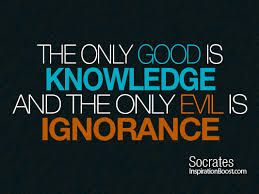
What we call evil Is not an evilness of being, but a fixation of wrong attitude. It is something that arises as the result of tradition, association, temptation and a lack of interior integration. All ignorant people regardless of how they choose to live are criminals in some degree, because every ignorant person will hurt someone, and this itself is a crime. Every person who is selfish, or who advances his own cause at the harm of another is criminal. Everyone who breaks Universal law, is a criminal before the Law.
But this does not mean that such individuals are hopeless; it does not mean that they must be punished forever or cast out of society. It means that the vortex of attitude by means of which the criminal state arises in the self, must be corrected.
We must remember that we live in a universe of Law; we live in a universe in which the Law itself is beautiful. We do not live in a universe of frustrating, inhibiting, tyrannizing laws, but of laws causing motion, causing all things to unfold out of their own needs.
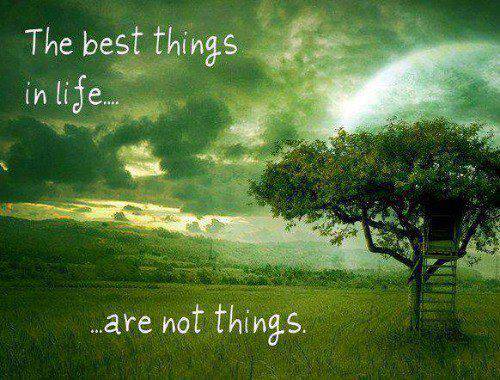
In nature there are infinite forms of life, and each one of these comes to its own blossom.
The universe is not made up of things; it is made up of relationships between phases of motion. Therefore, we are the ones who create the obstacles with which we confront our own endeavors and purposes.
We must begin to reduce the pressure; because after all, what does it benefit us if we gain the whole world and lose our own soul?
Live and Learn. We All Do.
Thanks for stopping by. Please share 
Please don’t forget to leave a comment.
via WordPress http://ift.tt/2GiqYgG
